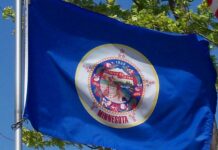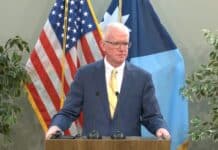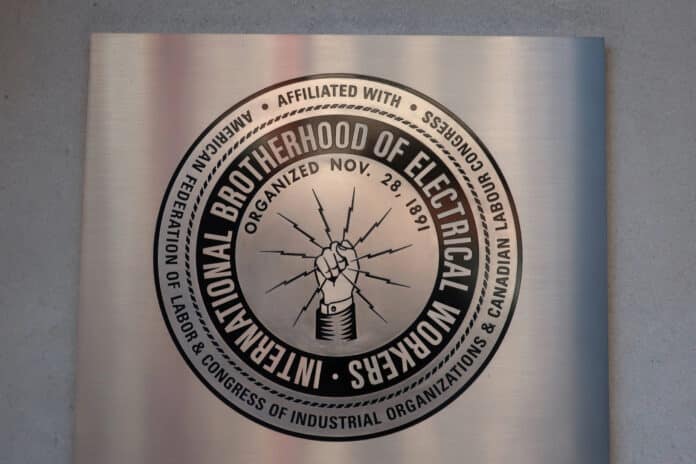A Minnesota woman has filed federal charges against the International Brotherhood of Electrical Workers (IBEW), saying she is being forced to financially support the union’s political activities.
Theresa Klassen, an employee of Agralite Electric Cooperative, filed the charges against IBEW and IBEW Local 160 with the help of National Right to Work Legal Defense Foundation, a nonprofit organization that defends employees whose rights have been violated by “compulsory unionism abuses.”
In a press release on the case, the organization explained that Klassen is asserting her rights under the Communications Workers of America (CWA) v. Beck Supreme Court decision, which “forbids union officials from forcing workers who have refrained from formal union membership to pay dues for anything beyond the union’s monopoly bargaining functions.”
IBEW can require Klassen, who resigned her union membership in October 2024, to pay union dues as a condition of keeping her job because Minnesota is not a “right-to-work” state. However, nonmembers like Klassen can object to paying full dues and instead pay a reduced amount under the Beck decision, according to the press release.
In right-to-work states, union membership and all union financial support are voluntary, the release explained.
“It’s disappointing that IBEW union officials can legally force me to fork over even a little bit of my paycheck to them after I resigned my membership, but refusing to pay for union politics is my right and the IBEW isn’t respecting it,” Klassen said. “They’ve put a bunch of time limitations on when I can exercise this right, and are also requiring me to contact union bosses in Washington, D.C. who I have never met just to prevent my money from going toward union politicking I oppose. This is wrong.”
According to National Right to Work, IBEW has placed “illicit limits” on Klassen’s Beck rights by only allowing her to opt out of paying for political activities during certain “window periods” throughout the year.
“Window period restrictions on when employees can exercise their Beck rights allow union officials to extract money from workers who have already objected to financially supporting union activities,” National Right to Work said.
IBEW is a North American union representing hundreds of thousands of workers across both the U.S. and Canada in fields such as utilities, construction, telecommunications, and more.
During the 2024 campaign, IBEW endorsed Joe Biden and Kamala Harris, and praised their support for DEI practices in a policy brief. According to Open Secrets, 95% ($1.8 million) of IBEW’s PAC donations went towards Democrats in the 2024 election cycle.
Alpha News spoke to Jacob Comello of National Right to Work, who brought attention to the disparity in IBEW’s political donations.
“…PAC expenditures are just one way that a union funnels money to political causes. The truth is that union bosses spend billions every election cycle on politics using money from union general treasuries, which are filled with dues paid by many workers in non-Right to Work states (like Ms. Klassen) who would be fired if they refused to pay,” Comello told Alpha News. “These don’t take the form of formal PAC disbursements to candidates’ campaigns, but are other sorts of expenses associated with the union’s political agenda (making politics-related union merchandise, organizing rallies, etc.).”
Comello stressed the importance of allowing workers to “exercise their Beck rights, as this gives them the option to object to full dues payment and pay a reduced amount of dues based on what the union claims is the percentage of dues that goes toward just bargaining expenses.”
Klassen filed her charges with the National Labor Relations Board last week. Alpha News also contacted IBEW for comment, but did not receive a response in time for publication.
Sarah Prentice
Sarah Prentice has previously written for Campus Reform and worked as an intern at Media Research Center. While continuing to pursue her degree in political science, she worked full-time in communications and media outreach for a pro-woman, pro-life non-profit. Now a fellow at Alpha News during her senior year of college, she hopes to graduate with her political science degree from SUNY Brockport and combine it with her media and communications experience to pursue political journalism. She has a special interest in reporting on stories related to social issues, education, public health, and religious freedom.











